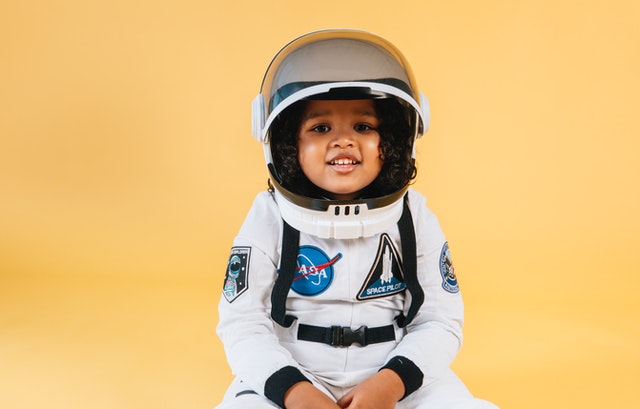
Authentic Experiences as the Key to Effective Project-Based Learning
We all remember projects from our childhood. Perhaps you built a papier-mache volcano that “exploded” with dyed baking powder and vinegar lava or designed a diorama to showcase the experience of pioneers on the Oregon Trail. A highlight from my childhood was dressing up and personifying Christa Mcauliffe for my fifth-grade historical figures fair. My mother even arranged for me to visit the Christa Mcauliffe Center and borrow an astronaut jumpsuit for the presentation.
This project likely stands out because it was rooted in a real-world experience. I identified Christa Mcauliffe as an inspiring historical figure and after visiting the science center, felt compelled to represent her to the best of my abilities. I stepped into her shoes when I donned the astronaut jumpsuit and had to answer a variety of questions about her life and experiences from fair visitors.
This learning experience shared many of the best qualities of effective project-based learning. It was (to use the language of Education Reimagined’s Framework), personalized, relevant, and contextualized, learning “rooted in real-world contexts that empowers the learner to demonstrate their learning in a variety of authentic ways and settings”. However, as per the Buck Institutes project design rubric, it had a ways to go in providing me with an authentic driving challenge, as much fun as a “fair” might be.
It can be incredibly challenging to design authentic challenges for students. Thank goodness for organizations like the Buck Institute and EL Education that provide educators with exemplars, rubrics, and resources to support the development of rigorous project-based learning. Projects require teachers to step into the role of learning facilitator or coach as opposed to true “expert”. As students develop their own understanding and dig deeper into inquiry, they may push the limits of their educator's knowledge and experience. This can be tremendously intimidating.
A platform like Outschool can support teachers faced with the challenge of connecting their learners with true experts and authentic experiences. With over 140,000 classes offered by high-quality vetted educators, learners can connect with learning experiences that can deepen their understanding and help them build critical skills. Imagine a classroom where learners are challenged to effectively communicate public health information during a pandemic. Students can enroll in a class like Darby Kennedy’s US Foreign Simulation Camp to better understand how to prepare for the next pandemic. Armed with this knowledge, they can take a class with Sean Douglass to learn how to create a podcast or work with Dr. Donna Kay to design a new website. Perhaps a teacher wants to connect their learners with different perspectives to inform a history project, on Outschool they can connect learners with educators like Kelly Tudor, a Lipan Apache educator, who helps “bridge the gap between what people think they know about us and who we really are”.
Project-based learning is rooted in inquiry, this learner-centered practice empowers learners to push the limits of their teacher’s expertise and experience. Teachers and learners alike must go beyond the walls of their classrooms to solve this problem. My mother drove me to Framingham so I could speak with experts at the Mcauliffe Center. We were lucky a resource was within 20 minutes of our house, a platform like Outschool can bring rich and diverse learning experiences within reach of every learner. Learn more today on how Outschool can support your teachers and learners.
.jpg?width=352&name=shutterstock_1200194515%20(1).jpg)

